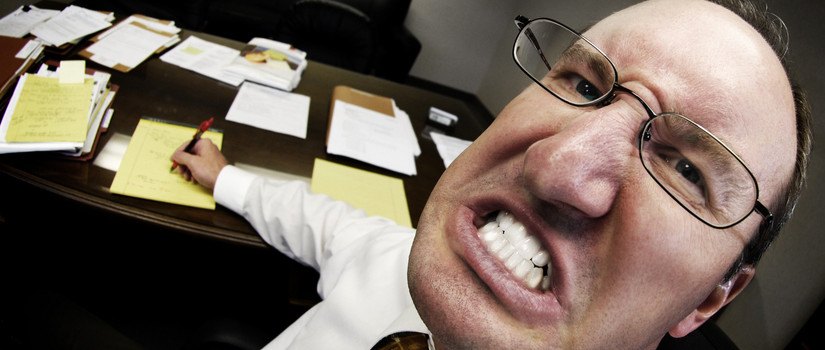FEAR OF DEATH
By, James L. Thornton
How little do we realize the meaning of the word death! Jesus took the sting away.
Hebrews 2:14 “Forasmuch then as the children are partakers of flesh and blood, he also himself likewise took part of the same; that through death he might destroy him that had the power of death, that is, the devil; 15. And deliver them who through fear of death were all their lifetime subject to bondage.”
Jesus shared man’s mortal nature that by His dying men might be freed from fear of death. There are a great many of God’s professed children who live in continual bondage, in the constant fear of death. I believe that it is dishonoring GOD. I believe that it is not God’s will to have one of His children live in fear for one moment.
Jacob showed us how to die: Genesis 49:33. “And when Jacob had made an end of commanding his sons, he gathered up his feet into the bed, and yielded up the ghost, and was gathered unto his people.
Look and see the way-worn pilgrim breathe his last. His life has been a stern fight; his pathway not strewn with roses, but set with flints; “few and evil the days of the years of his pilgrimage.” Compared with the brilliant career of Esau, his life might be almost considered a failure estimating it by all human standards of failure and success.
But as the scaffold is taken down piece by piece, we catch glimpses of the real manhood which God has been so carefully built up, through long years of pain and sorrow; and as it comes into view, we feel that it is more than enough to justify all. Better a hundredfold to be Israel the Prince, though an exile; than Esau, the founder of a line of dukes (Genesis 36).
Jacob seems to have fixed his mind with increasing eagerness on Heaven. He felt that if God had not destined for him an earthly resting place, yet He had prepared for him a City. Its foundations had not been laid by man; its walls bore no mark of human workmanship; its atmosphere could not be stained with the smoke or dust of the earth. “I am to be gathered unto my people.”
When the dying Patriarch spoke thus, he meant something more than that his dust should mingle with all that was mortal of his forefathers. No; he meant something more than this. He surely looked upon the City as the gathering-place of his clan; the metropolis of true and Godly hearts; the rendezvous of all who were his people, because they were the people of God. How much truer is this thought of Heaven than that which is entertained by many today.
Can that be a Father’s home, where the brothers and sisters do not know each other?
THE DEATH OF JACOB:
Genesis 49:33. “And when Jacob had made an end of commanding his sons, he gathered up his feet into the bed, and yielded up the ghost, and was gathered unto his people.”
“What do you think of the intermediate state?” “Shall we be consciously happy from the very moment of death?” “Shall we know one another on the other side?”
These are the sorrowful questions asked on many sides; and they present a melancholy contrast to the words of the dying Jacob, “I am to be gathered unto my people.” At the best “we know not what we shall be.” We cannot penetrate the veil that only opens wide enough to admit the entering spirit.
It is clear that our spirits will not reach their full consummation and bliss till the morning of the resurrection when body and spirit will be reunited, but it is equally clear that they will not be unconscious, but will enter into the blessed presence of our Lord
This was taught by Christ Himself, when He quoted the words, “I am the God of Abraham, Isaac, and Jacob:” and added the comment, “He is not the God of the dead; but of the living.” That grand formula was spoken years after Jacob had fallen asleep, and yet God speaks of Himself as his God: and since He could not be the God of dead mummies only, or of unconscious spirits, Jacob and all the rest must have been living.
Yes, they were living then, and are living now, possessed of all the vivid life that made them what they were. There is no accent of uncertainty in the New Testament. As soon as the tent is taken down, the mansion is entered (2 Corinthians 5:2). Absent from the body, the believer is present with the Lord 2 Corinthians 5:8.
Do not puzzle over useless questionings: be content to know that death is not a state, but an act; not a resting-place, but a transition; a passage, a birth, a crossing the Bridge of Sighs from the prison to the palace. It would not have been an object of anticipation to Jacob to be gathered to his people if he would not know them when he reached their best society.
When the Jew thought of the unseen world, he expected to meet the saints, of whom he had heard from childhood, and especially Abraham. I feel this is what Jacob meant when he was “to be gathered to his people.”
In the life of Jacob, we see the hand of God reaching down and molding a man into a saint who to most people would have seemed hopeless.
HEAVEN, THE HOME OF THE GOD OF JACOB:
Psalm 46:7. “The LORD of hosts is with us; the God of Jacob is our refuge. Selah.
Psalm 46:11. “The LORD of hosts is with us; the God of Jacob is our refuge. Selah.”
It is very comforting to discover how many parts of Scripture God calls Himself the God of Jacob. He seems to take special delight in the title which links His holy nature with one who, so far from giving promise of saint-ship, was naturally one of the most dishonorable of men.
We should not have been surprised to find Him speaking of Himself as the God of Israel, the Prince; but it is as startling as it is reassuring to find Him speaking of Himself still more often as the “God of Jacob.” God has not changed since He took Jacob in hand.
And He feels towards such characters now as He did when He began his gracious work of renewal in that poor cramped heart; and that He is ready to do as much for all who are conscious of being equally worthless by nature, and who are willing to put themselves into His gracious hands which reach down from Heaven to earth, “molding men.”
There is little doubt that God would do as much for all the readers of these lines, if only they were willing. You too may be cunning, crafty, and deceitful; or you may be prone to outbursts of ungovernable temper, or you may be cursed by unholy desires that honeycomb your better nature; or you may be constantly brought into captivity to some tyrannous sin.
Now there is no need for this to be your hapless lot for one moment longer, if only you will hand yourself over to the mighty God of Jacob.
Before God will initiate His gracious work on a human spirit, it must be entirely surrendered to Him. The key to every room, and closet, and cupboard, in the being, must be put into His hands. Every province of the life must be placed under His government. There must be no keeping back, no reserve: to withhold one thing, even the least, will vitiate the whole transaction; and leave a foothold for the self-life, from which it will speedily spread back throughout the whole nature.
Jesus says, “Take My yoke.” And remember, a yoke is for two. Our Lord yokes Himself at our side; and paces by us, step by step, doing for us what Simon the Cyrenian once did for Him, on the way to Golgotha.
HOME AT LAST IN THE CAVE OF MACHPELAH:
We shall be gathered to our people. Death will not usher us into a chill, unfriendly circle; but into a great gathering of loving and sympathizing friends, who shall give us a choral welcome as we enter into the eternal, everlasting kingdom of our Lord.
Genesis 49:29. “And he (Jacob) charged them, and said unto them, I am to be gathered unto my people: bury me with my fathers in the cave that is in the field of Ephron the Hittite,
30. In the cave that is in the field of Machpelah, which is before Mamre, in the land of Canaan, which Abraham bought with the field of Ephron the Hittite as a possession for a burying place.
31. There they buried Abraham and Sarah his wife; there they buried Isaac and Rebekah his wife, and there I buried Leah.”
For seventeen years Jacob had lived in Egypt, surrounded by all the comforts that Joseph’s filial love could devise and his generosity execute. He must have become familiar with Egypt’s splendid temples and obelisks and pyramids, with which that cave could not for one moment be compared. But he would not rest in any of them. He must be laid where Abraham and Sarah, Isaac and Rebekah, and the faithful Leah awaited resurrection.
How calm and noble that face looked, fixed in the marble of death! The Jacob-look had vanished from it, and it was stamped with the smile with which the royal Israel-spirit had molded it in its outward passage.
The body was carefully embalmed. No time, or pains, or cost, were spared. Egypt herself mourned for him for seventy days. And then one of the most splendid funeral processions that ever gathered to lay saint, or sage, or hero to his rest, carried that precious casket in solemn pomp from Egypt up to Canaan.
The chivalry of Egypt, its statesmen, and counselors, its princes, and priests, joined with the shepherds of Goshen in accompanying the cortege. And the signs of mourning were so great as to impress the inhabitants of the land, the Canaanites.
The stone was rolled away, and the remains laid on their appointed niche; and in all probability, they are there, in a state of perfect preservation, unto this day.
Many a storm has swept over them Assyrian, Egyptian, Babylonian, Grecian, Roman, Saracenic, and Mohammedan. But naught has disturbed their quiet rest; and they hold the land in fee, till God shall fulfill, in all its magnificence, the promise which He made and has never recalled that He would give the land to Jacob’s seed for an everlasting inheritance.
So rest thee, ISRAEL THE PRINCE! SEE YOU IN GLORYLAND!
By, James L. Thornton
^^^^^^^^^^^^^^^^^^^^^^^^^^^^^^^^^^









